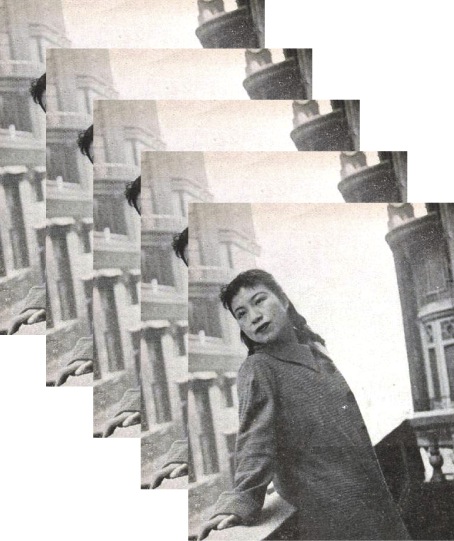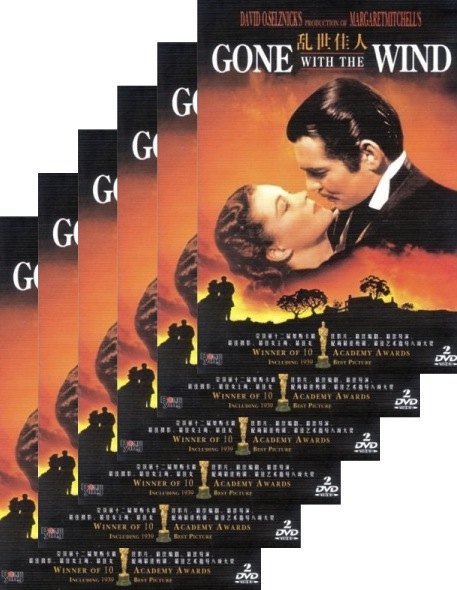
百花齐放,随风而逝
During the Cultural Revolution two foreign novels were allowed into China: Gone With The Wind and The Scarlet Letter. For the reason that they were personal favourites of Jiang Qing, the fourth wife of Mao. The Scarlet Letter could take partial cover in that it was being read in China as a feminist tract, but Gone With The Wind is afforded no such reprise—it clearly upheld bourgeois and imperialist values. Who needs reprisals when you have show pony trials.
Jian Qing also known as Madame Mao; was a Chinese actress and a major political figure during the Cultural Revolution. She was the wife of Mao Zedong, the Chairman of the Communist Party of China. She used the stage name Lan Ping during her acting career, and was known by many other names too. She married Mao in Yan'an in November 1938 and served as the inaugural "first lady" of the People's Republic of China. Jiang Qing was best known for playing a major role in the Cultural Revolution (1966–76) and for forming the radical political alliance known as the "Gang of Four".
In the same vein, Jiang Qing allowed the anomaly of the piano, symbolic of the bourgeoisie as it was, to remain unscathed during the Cultural Revolution, for the reason that it had afforded her self-expression when she was a forlorn little girl.
Jiang Qing was once known as the actress Lan Ping. At twenty three she went to Yanan as a movie-actress turned political pilgrim, to find that the soldiers were collecting photo cards of Shanghainese actresses and White Russian ballerinas from cigarette boxes, but no one had ever heard her name.
After Lily Wu had been sent away from Yanan, Lan Ping arrived as the next bourgeois dancing hall bitch. If Lily Wu had been first lady of China, would the Cultural Revolution have taken place? Lily Wu, herself a poet. Jiang Qing, as Lan Ping, had tried seeking publication with literary journals in her youth, to little avail.
Jiang Qing knew that Mao found her penchant for western dress and Hollywood films licentious. She’d once complained to Song Qingling, the widow of Sun Yat-sen: He just wears the same old black or green Lenin suits. A foreigner once gave him a tie, but he hung it up and he has never worn it. I’ve seen photos of Sun Yat-sen in a Western dress suit and a bow tie, and you in a qipao with a colourful fringe—how beautiful! These days, foreigners come to China and laugh at us for all wearing the same type of clothes. They think we don’t have the freedom to wear what we like. Jiang Qing betrayed Mao in small ways when she was in Moscow—enjoying cherries and scotch, watching specially imported European films.
The premier Zhou Enlai, educated in France, kissed his wife Deng Yingchao in public when she sent him off on an airplane. Mao had never been seen to kiss Jiang Qing in public, but in the midst of heavy party disapproval of her lack of communist affiliation and bourgeoise proclivities, he had once said: I cannot go on with revolution without the love of Jiang Qing. Now that Mao was sleeping with his nurses and secretaries, Jiang Qing thought of the scene in Gone With The Wind where Scarlett O’Hara says to Rhett Butler, I only know I love you, and Rhett says, That’s your misfortune.
In her choice of men she had grown from strength to strength, and was she not now the most powerful woman in the land? She looked at Mao, at his portly shoulders, at the mole on his chin. What was it she wanted as a revolutionary? What was it she had wanted as an actress? But surely, and still, wasn’t there much for her to be proud of? She’d come so far.
Yet if she had to pick her proudest moment—it would have to be when she was just twenty-one, playing Nora in Ibsen’s A Doll’s House. She’d boasted, in retrospect, of her having gone “beyond Ibsen’s original conception of the character”. How she had captivated the audience. The shishi xinbao paper had written that 1935 was the year of Nora. Miss Lan Ping has made us know the real Nora for the first time, one of the leading critics of the day wrote. When she cried, everybody felt miserable; when she smiled, the whole theatre was happy.
She—and the audience too—knew she was challenging traditional Chinese notions of patriarchy via Nora’s lines to her husband as she resolves to leave the domesticity of her conventional marriage: We must both be perfectly free. Look, here’s your ring back—give me mine.
HELMER: But this is disgraceful. Is this the way you neglect your most sacred duties?
NORA: I have another duty, just as sacred.
HELMER: You can’t have. What duty do you mean?
NORA: My duty to myself.





